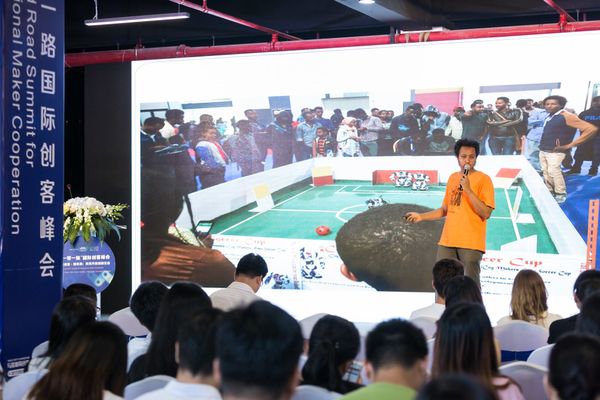Only images of war, corruption, and extreme poverty came to my mind when I think of Chad, a landlocked country in north-central Africa. These images were probably my stereotype. But try search “people in Chad” in Google Images, you will most likely see pictures of hungry children and vulnerable women. It is a similar result in the Chinese Baidu Images.
Chad is one of the poorest countries in the world. Google or Baidu Images' results are not false. But how come these imagines seem to be the only images that you can see in the media? Why does the first-page search result not show the photo of young Chadian programming in PHP?
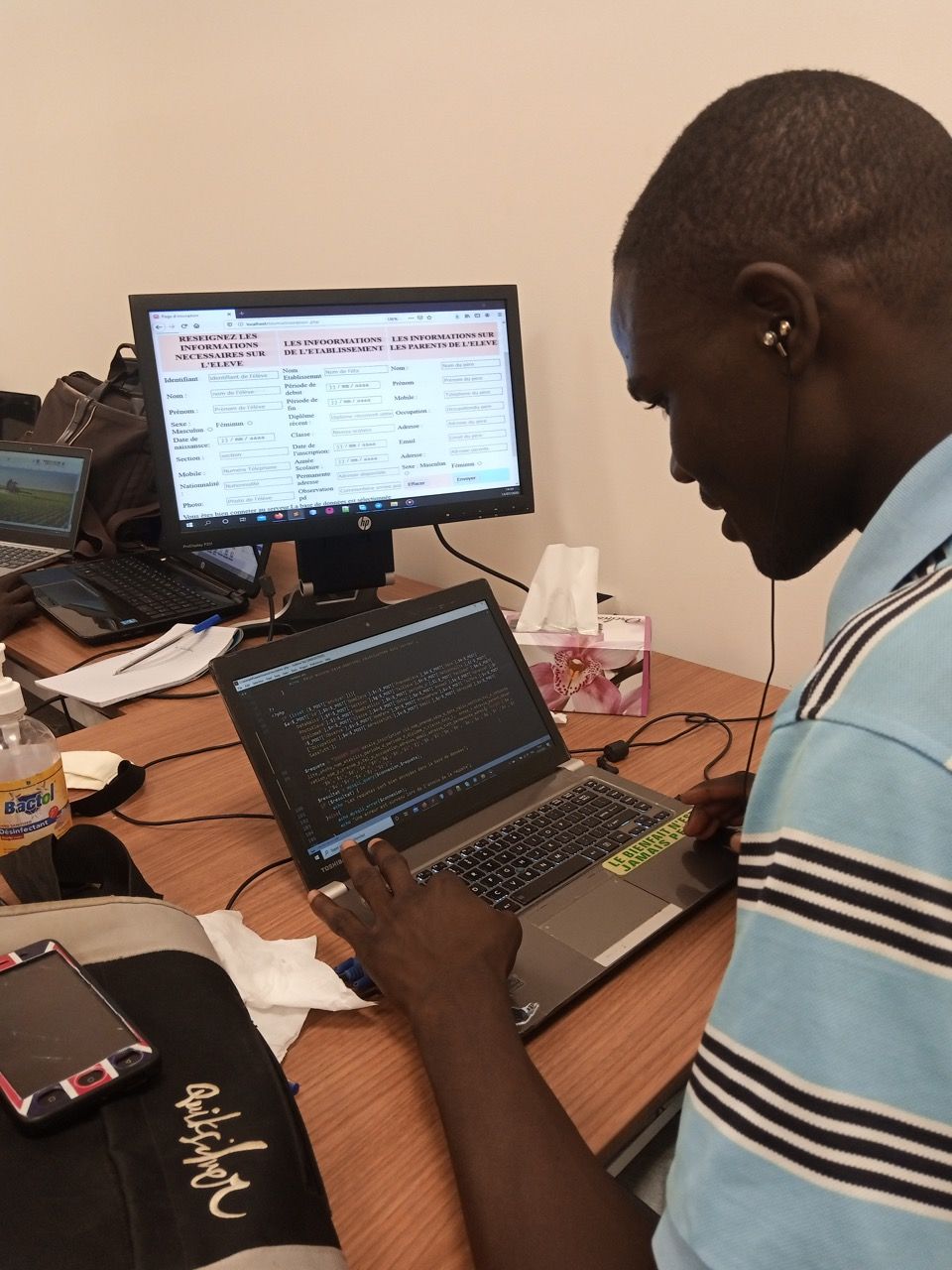
I am not suggesting Google/Baidu Images denying or hiding any of those problems that Chad is facing. But I am asking the media to share more positive stories and to talk about those who are driving the changes.
Being ignorant, I automatically assumed that Chadian people are just poor and uneducated. I certainly did not associate Chad with innovation and technology. I was also not aware that local young were learning to develop applications and starting different kinds of new businesses. When I learned about Chad Innovation, a youth incubator, and a co-working space in the capital of N'Djamena, I was surprised and excited.
Chad Innovation was founded by Hamid Khayar in 2018. Born and raised in Chad, his curiosity about Asia took him to India where he completed his Master's degree in Computer Applications. Later he was selected by the Mandela Washington Fellowship for Young African Leaders and completed his education on entrepreneurship at the University of Texas at Austin.
Returning to Chad from the US, he organized the first Chad Innovation and Entrepreneurship Summit. Thousands of young people joined the Summit and they were eager to learn more about technological innovation.
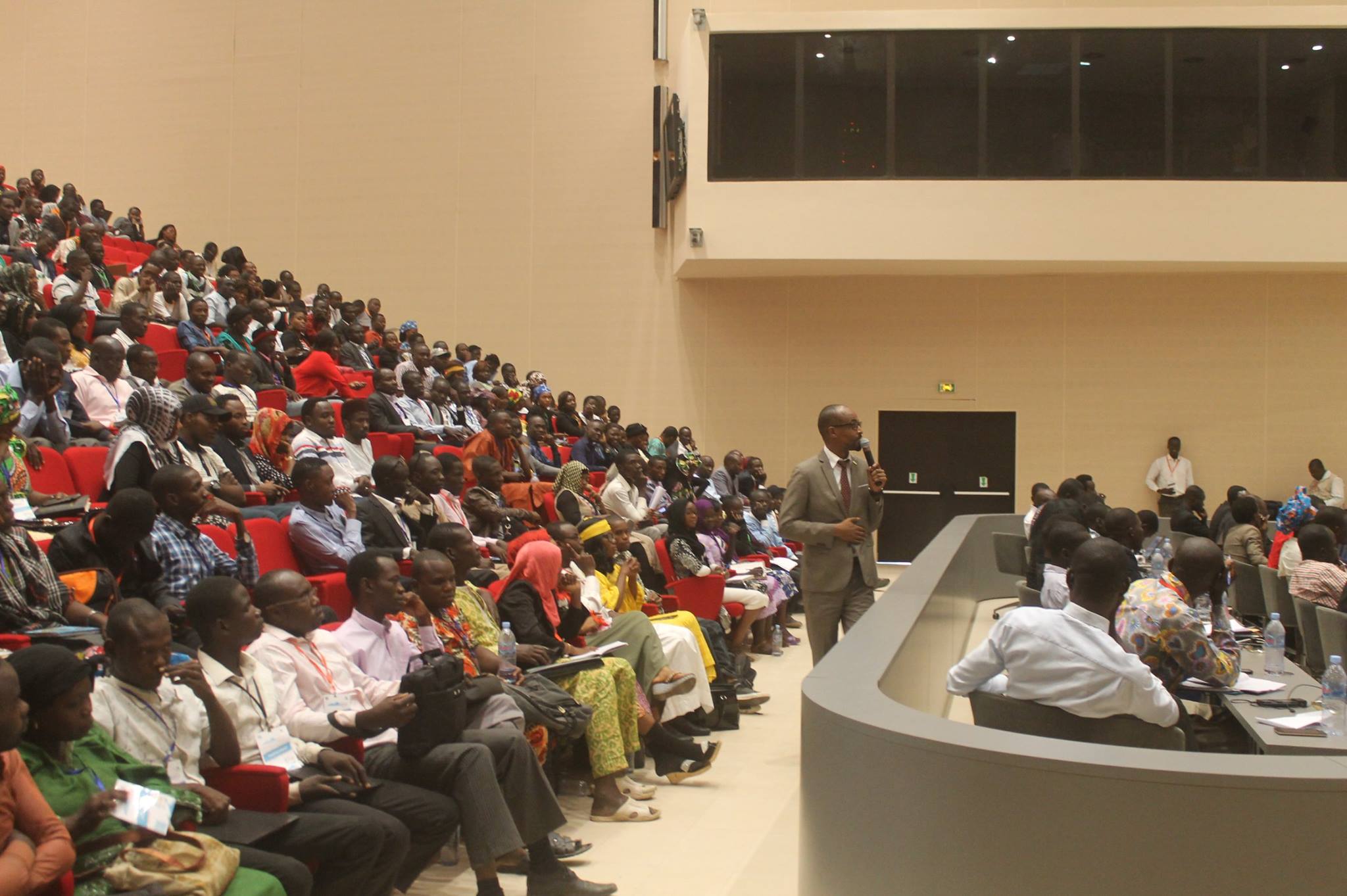
There are different startup and innovation ecosystem players in the Nordic countries. They may have quite different agendas, but there is a shared understanding between all the players – startups and innovation are good for the country. Therefore, many private companies and public agencies support innovation and entrepreneurship.
If you have a good idea to support the local community, it is quite likely that you can get support, for example, from the regional Almi office in Sweden. When Slush and Arctic 15 were organizing their event in Helsinki, my ex-employer Helsinki Business Hub, a public-funded agency were highly supportive. Our team sent out marketing newsletters, purchased event tickets for almost all the team members, and sponsored side event.
The situation in Chad is probably the opposite compared with the Nordic countries. This is why I find Hamid’s story inspiring. He is resourceful and is determined to support youth in his home country. With a limited budget and support, I was curious how Hamid pulled off this first Chad Innovation and Entrepreneurship Summit and eventually set up an incubator. Below I hope you will enjoy my chat with Hamid.
Before we dive into talking about Chad Innovation. Let’s talk a bit more about you. What made you decide to pursue a master’s degree in India 10 years ago?
I had my bachelor's degree in computer application and business in Dakar, the capital of Senegal. For my Master’s degree, I applied to some universities in the US and France and I got accepted.
However, I have always been fascinated by the rise of Asia. I once read a book called "When China wakes up, the world will tremble" by Drs Rhana C.M. Tersteeg. I was deep into the South-South Cooperation and I believed in BRICS.
I was also a disciple of the great African author Cheikh Anta Diop from Senegal. The Western academic world does not agree with his view. But he had archaeological and anthropological evidence that the Pharaohs were of Negroid origin. His books helped me better understand African civilization. I learned that even though Asia and Africa have many disparities, there are also many similarities.
In the end, I decided to study in India. Many of my friends back then thought I was going to India because of the beautiful Indian women. But I explain to them that people there speak good English. The cuisine is similar to Chadian food. The tuition fee and living costs are relatively cheaper. Also, Bangalore is the center of India’s high tech industry.
After returning to Chad from India, I started an IT consultancy company African Tech World technology in N'Djamena. My co-founder is also an engineer and he studied in Algeria. Both of us are entrepreneurial. Instead of looking for jobs, we started our company.
You were selected by the Mandela Washington Fellowship and went to study at University of Texas. What were some of the cool experiences you had there?
One time all the Mandela Washington Fellows went to the blind coffee. The coffee house was completely dark. When you enter the coffee house, the blind people will guide you on the table which you will be sitting.
The environment was cozy with music. We had discussions about our studies and plans. I had one of the best lessons here: in the darkness, it does not matter we are Chinese, Americans, or Africans; we are all human.
I remembered one lady who was scared in the darkness. She eventually opened up and shared with me about her traumatic experience of sexual assault. When we came up from the Café, we had a debrief. People cried and expressed feelings that they’ve been hiding in their hearts. It was a vulnerable and emotional experience.
In terms of studies, I learned there was no need to be humble about your achievements. Even if you may consider these achievements insignificant, it is important to put in your resume and show it to people. I learned how to present myself to captivate my audience’s attention.
Another interesting experience is having a discussion with American entrepreneurs in the Capital Factory. I met many young people in their early 20s. I told them that they had every chance to be successful in the US because they had everything. In retrospect, I think I was ignorant.
The young person replied to me that it may seem that they had many chances to succeed. But if they wanted to do anything different, there were thousands or hundreds of people competing with them. He told me that it was actually easier for me to succeed because there was less competition in my country. His reply made me reflect and I realized that there was so much I can do for my country.
You were working as a IT manager in the Radisson Blu. What made you decide to start Chad Innovation in 2018?
When I came back from India, I started volunteering at the University of N'Djamena as a lecturer. I called my class as the “truth classes”. I remembered in the first class, I asked my students the meaning of illiterate of the century. Yet students gave me the definition from the dictionary.
I shared with them the quote from Alvin Toffler who said, “the illiterate of the 21st century will not be those who cannot read and write, but those who cannot learn, unlearn and relearn”. I explained to my students that the importance of speaking English and knowing computer technology because these skills will allow them to learn about the world.
Unfortunately, it is not common to see Chadian have proficient skills in English and computer. Most students speak French or Arabic, and they have limited training in computer literacy.So, I told them to learn to speak English and to use a computer. It does not matter if which tribe you are from and what kind of family you have. If you do not master these skills, you are illiterate.
We do not have to wait for our parents or our governments to help us. We must act now on our own. Though some negotiation, I connected my students with some computer schools so that my students can get access to the internet. Some of them became great journalists, and they kept telling me that I am the first one who tells them the truth.
These teaching experiences made me start to think about what I can do more for young people in Chad. I decided to organize the first-ever Chad Innovation and Entrepreneurship Summit.
Young people were very interested when I told them about this idea. People were very open to this idea, and they wanted to contribute to this initiative. We had around 2500 young people participated in the summit. It was beyond everyone's expectations.
These young people are eager to know more about technology and innovation. We also brought two young American entrepreneurs to deliver workshops in English. One is Forbes 30 under 30 social entrepreneurs; another one specializes in community building. In the English workshops, I saw young Chadian communicated in English fluently.
How did you fund the Chad Innovation and Entrepreneurship Summit and Chad Innovation Hub?
The government did not provide us any funding. But they supported us with other issues. For example, the event was under the patronage of the president of Chad. There is bureaucracy in the governments, so I am planning to do future projects under the public-private partnership.
With limited funding, I believe that we did magic to make this Summit happen. The ultimate goal is to launch an incubator. But I knew that I needed to make some noise before that. So I spoke to many of my friends and acquaintances. I asked them to help me organize the Summit as volunteers.
I told them that I have never done anything like this in my life. I asked them, are you with me? How can we do it? Where can we do it? Where can we find funding? What is the best way of doing it? I asked them to join me and find out this together. We were on the same mission to drive positive changes.
We reached out to our president and asked for his support. He agreed that we had institutional support. We wrote our first sponsor deck and we sent them to banks and telecommunications companies.
Eventually, we secured funding of 16 million Central African CFA franc, around $28, 471. We only used half of the funding because we negotiated to get better deals. For example, we convinced the Radisson Hotel to provide our venue space for free.
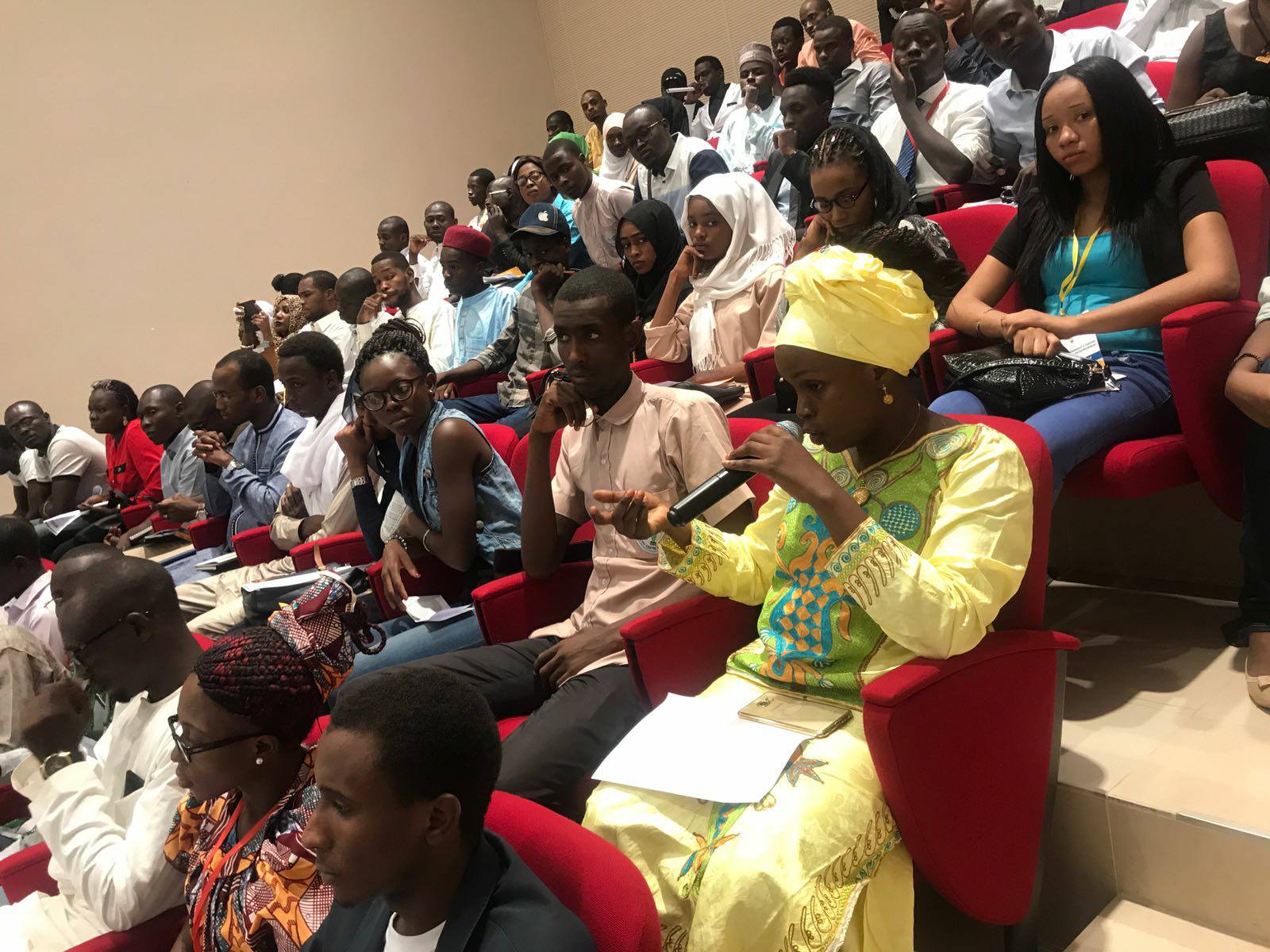
To get the two American entrepreneurs to come to Chad, we applied for a $5,000 scholarship from the State Department of the US. We also discussed a deal with the local government institution so that we got an apartment to host the Chad Innovation team.
It took a lot of negotiations to convince different stakeholders to support our cause. We finally launched the Chad Innovation Hub after the Summit, but it is not easy to get any funding. So right now we try to utilize the power of our volunteers.
Also, we do different projects for the international organization. We worked with UNDP on several projects. For example, it had $7,000 to build an application to fight Covid-19. We helped them with developing the application.
Also, we organized a hackathon with UNDP and we helped your people prototype their ideas. People came up with ideas such as an application to show the location and opening hours of all the local pharmacies; and an idea of setting up a campaign on stopping violence against women.
Another organization needs help in spreading information about microcredit, and we had one talented volunteer who helped them draw infographics so that people who can not read can also get access to information.
What kind of training do you offer to the local entrepreneurs and the students?
First of all, we inspire people. We can support the entrepreneurs in many different ways, but the entrepreneurs themselves must believe in their ideas. So, we help them build their confidence.
Second, we offer our time. I'm an engineer and I started my own business. So I discuss with young people about their ideas and understand what kind of problems they are trying to solve.
If the idea has potential, then we help them with prototyping. We have volunteers business advisors and mentors in our network to help the young aspiring entrepreneurs. We provide a lot of training on business ideation, business modeling, marketing, and communication. We also help them with practical issues such as setting up a website.
We have some refugees who are part of the chat innovation. We provide basic business training, but more importantly, we make sure they feel that the part of the society here in Chad. A few co-founders of Chad Innovation are refugees.
So far, Chad Innovation has trained more than 200 young people. These people started 16 startups so far. In Chad Innovation Hub, we listen to all the ideas from young people. We never reject anyone. Once we find young people who are very serious about the idea, we will move the business idea forward with him/her.
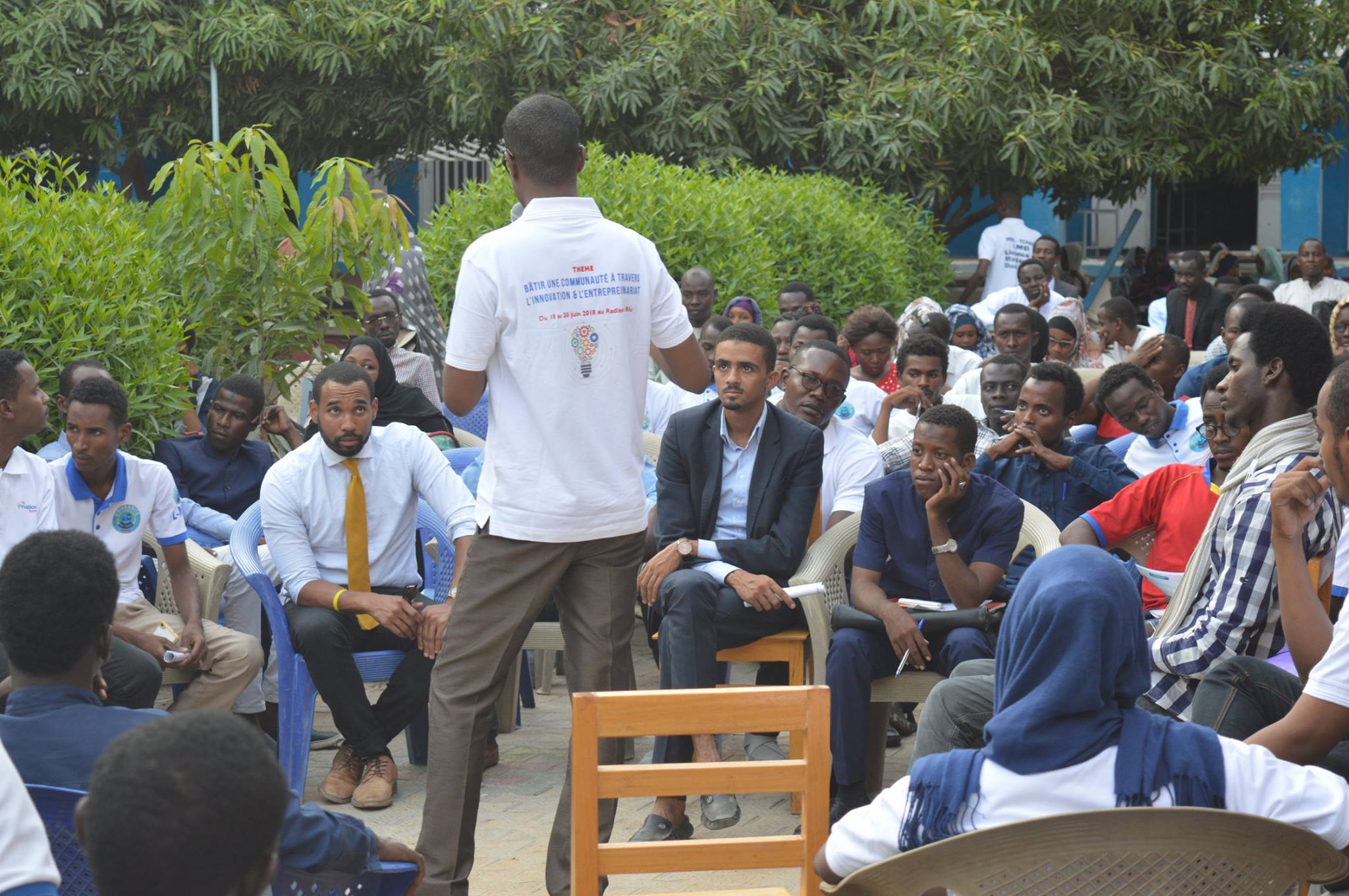
For example, we work with one entrepreneur who is working with a project called “offline hospital”. It is a small Raspberry Pi computer that includes all medical information and practics. The small computer does not require much energy, probably needs a small solar panel. This is a solution for the hospital in the rural areas in Chad.
Internet penetration is around 14% which is low. In the night, people here do not know which pharmacy is still open and what kind of products they still have in stock. We are working with one entrepreneur to provide geolocalization of all the pharmacies here. So, local people can easily find out which pharmacy they can go to and what kind of medicines are available in the pharmacy.
We are also working with one entrepreneur who wants to set up a calling line that helps fight violence against women. Sometimes women do not want to share with the world about their suffering, so at least they can call the phone lines to receive the support that they need.
Also, we have a division that connects motivated students without financial resources with universities,local professional schools, and local companies for internships. We had one refugee from the Central African Republic. Chad Innovation community helped him continue his studies. Now he is in charge of this division.
His team reached out to different companies and asked them to offer practical training to the young people and students in our network. Sometimes, these companies may not have the time to do that, they would instead sponsor some of the most promising students for a few hundred dollars so they can continue their studies.
You said that there are many opportunities to be exploited in one article. How do you think local young people can take advantage of that? What kind of challenges do they face?
I always share with people the example of Airbnb and Uber. In many African countries, we have been renting our extra rooms in our apartment. There are many informal drivers and we have been sharing cars and other transportations. Yet no one saw it as a business opportunity. Therefore, I encourage my students to see problems not only as problems, but also exploit opportunities in them.
For example, there is one guy near our university selling over-priced coffee to students. The students could come up with a better offering and service. Many people can not read or write here, students can also work on something trying to change that. Young people should develop a deep sense of observation about the local business environment.
There are many challenges for local young people.
First, the lack of training. Starting a business is complicated. Often they do not know where to get started. Chad Innovation Hub tries to address this issue. Even if someone is given all the money in the world, he/she can not make a business work without proper knowledge and skills. I believe in mentorship so we connect young people with the right mentors.
Second, the lack of funding. The government is working on something to fund more businesses but they are slow.
Third, I believe there is a certain degree of discrimination. You can apply for funding from international organizations but it requires you to write good proposals in English. The fact is that most people, the informal workers who hold this country’s economy together, do not speak excellent English. Maybe we got a young talent who has a good idea but can only speak good French and Arabic, he might lose this funding opportunity.
What are the goals for Chad Innovation Hub in the future?
The job market here is hard. But I see more and more young people who are not just interested in finding a job. They also want to develop their own business.
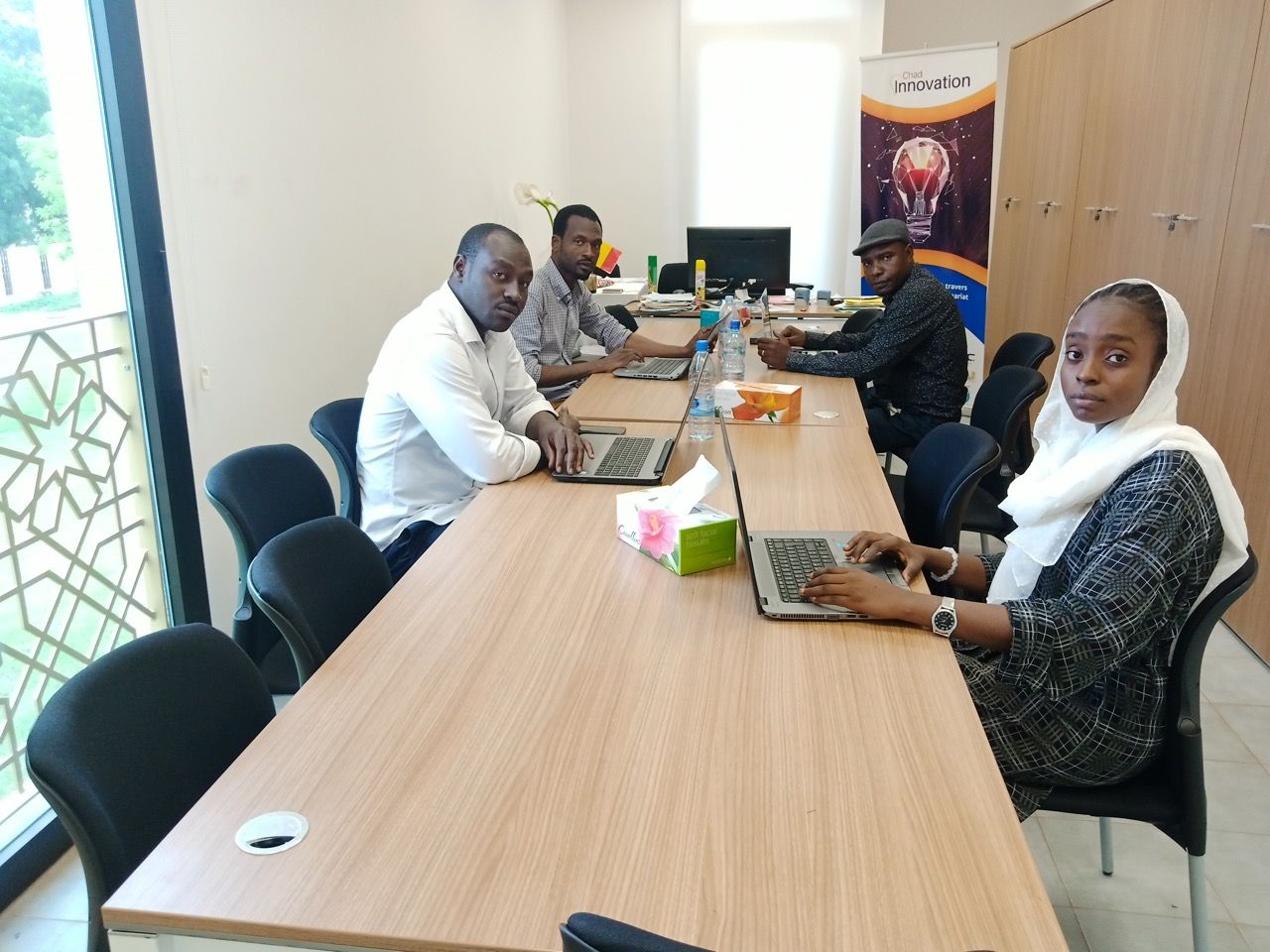
I want to see Chad Innovation as a place for youth, a place for ideation, and a place for entrepreneurship. I hope that when young people come to us, we can provide them all kinds of resources and support. In the future, we hope we can act as a business angle, investing in promising startups, and helping them grow.
There are many obstacles on our way. We are a land-lock country. We do not speak English. Many other African countries are ahead of us. We are in dire need of support because the government is not doing enough work to support the youth.
Unfortunately, when I wanted to register the innovation groups for Google for Startups, it was not open for Chad yet. A similar situation goes with some other international companies and organizations – Chad is not currently on their agendas.
But we are fighters. We do not easily give up. We will try to find other ways to make this work. I joined Radisson Blu as an IT manager because it helped me with other work. Sometimes people did not believe me. But when I tell them that I am working as an IT manager, people are more open to listening to me. It also shows young people an example of a different kind of career path.
I aspire to work full time in helping my country’s young people. I hope I can devote my life to Chad Innovation to build a vibrant youth community through innovation and entrepreneurship.



